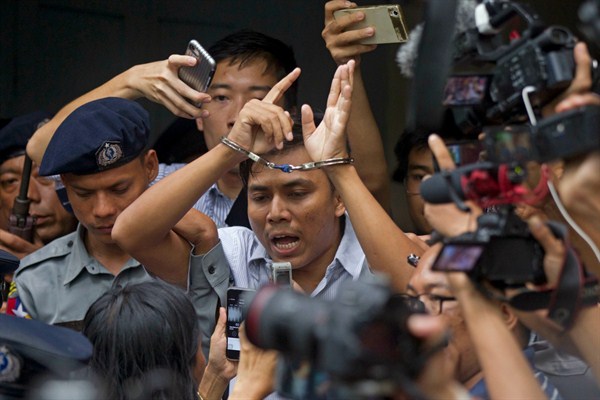Editor’s Note: This article is part of an ongoing series about press freedom and safety in various countries around the world.
Earlier this month, a court in Myanmar upheld the seven-year prison sentences of two Reuters journalists, Wa Lone and Kyaw Soe Oo, who were convicted in September under the British colonial-era Official Secrets Act while reporting on atrocities committed against the Rohingya ethnic minority. The case shows the barriers to reporting in Myanmar, especially on politically sensitive investigations involving the powerful military, despite some positive steps to relax media restrictions since the country transitioned from direct military rule and initiated major political reforms in 2011. In an email interview, Melissa Crouch, a professor of law and Southeast Asia specialist at the University of New South Wales in Australia, discusses how the media landscape has evolved in Myanmar and the threats that journalists still face there.
World Politics Review: What steps did Myanmar take to expand press freedoms when it transitioned away from direct military rule, and what impact has that had?

